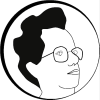|
|
Like other medical problems, which have no solution in traditional mainstream medicine, the area of hearing impairments attracted its share of quack doctors and healers. The rest of this document lists several quack remedies, which were proposed at various times.
If you have an interesting story about quack cure for deafness, please E-mail it to me for inclusion in a future version of this document. Do not forget to state explicitly your permission to include your story in the document.
-
Unscrupluous hearing aid dispensers would dispense defective or otherwise inappropriate hearing aids. The hearing aids would be dispensed also to people who really have other medical problems.
-
Acupuncture is claimed by various practitioners to improve hearing ability.
The following story was contributed by Yong Che Kim at 9 Nov 1993.
"Here is a negative case, my own experience. A half year after I became totally deaf in the wake of sudden deafness (clinical expression), I managed to undergo acupuncture treatments at a clinic of oriental medicine in Korea. The program consisted of 20 minutes session a day in a time span of three weeks. The end result: no effect at all, better or worse. Literally it ended up 'acupuncturing on a melon.' :)
-
Unnecessary combined tonsillectomy and adenoidectomy (fashionable in the 1930s for any excuse) was performed to see if it would improve the patient's hearing ability.
-
Someone told the following story:
I don't know if this is "folklore" (I doubt it) but when it was first discovered that I was indeed HH, my dad had the experience of a doctor or someone who thought poking a hole in my eardrum would solve my problems.
Needless to say, it didn't...
-
The following story was contributed by Andrea at 9 Nov 1993:
I was approached by a Buddhist once (I forget which branch) trying to convert me to her religion. She told me that people who had joined her religion "have sometimes gotten their hearing back." I told her I wasn't interested.
-
Religious fanatics who believe in their power to cure deafness are not limited to Buddhism, as the following story (contributed by Natalie Rigertas) may illustrate:
At a meeting of an organization I chair for students with disabilities, a woman asked me if I could hear. I told her, not very well. She then said she had something that would make me hear again. She wanted me to drink a bottle of holy water from Lourdes which was blessed by St. Andrew. I am not even Christian, so needless to say I declined. However, she kept on insisting that it was proven to make people hear again.
When it happened, right in the middle of my meeting, I was just dumbfounded, because this person truly believed that I could be 'cured', as if I had a disease to begin with. I almost decided to say sure, I'll drink it, and then tell her that it didn't work, but I thought that that might be too cruel.
-
The following was contributed by Mary McLerran at 7 Dec 2010:
Itard’s medical research was carried out on the deaf children institutionalized in the Paris school for the Deaf. What is not mentioned in all of the glowing references to his work was how he tortured the poor deaf children with electrical stimulation, leeches in their ears, pierced some eardrums, developed a gruesome technique for ‘flushing out the lymphatic excrement’ that supposedly blocked the ears of his deaf students, soaked their ears in a blistering agent repeatedly, fractured a few skulls, applied a white-hot metal button behind their ears, and sewed strings thought their necks to create a wound for the bad humors to escape from their ears. All this in the name of ‘science’—which he did, eventually, pronounce as fruitless here: “Medicine does not work on the dead. As far as I am concerned, the ear is dead in the deaf-mute. There is nothing for science to do about it.”
Source: Brueggemann, B. J. (1999) Lend me your ear: rhetorical constructions of deafness. Gallaudet University Press, Washington, D.C., pp. 110.
|
Did this Web site help you? If yes, you may want to consider making a donation to me.
When making a donation, please tell me what additional information could I add to the Web site, to make it even more helpful for you and people like you.
|
